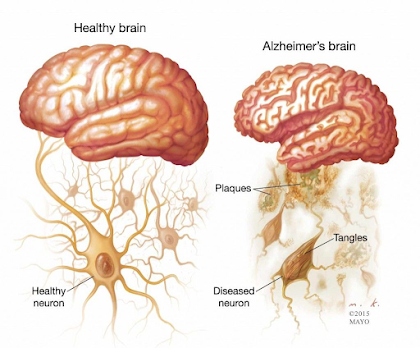Advancing the Alzheimer's Drug Development Pipeline: Promising Therapies and the Catalytic Role of Pharma Investment.
The landscape of Alzheimer's disease (AD) research and drug development has witnessed remarkable strides in recent years, fueled by the collective efforts of scientists, pharmaceutical companies, and academic institutions. This article aims to shed light on the promising therapies emerging within the Alzheimer's drug development pipeline, while emphasizing the pivotal role played by significant investments from the pharmaceutical industry in driving innovation and progress.
The Growing Need for Effective Alzheimer's Treatments:
Alzheimer's disease, a neurodegenerative disorder characterized by cognitive decline, memory loss, and functional impairment, represents one of the most pressing global health challenges of our time. With an aging population and limited therapeutic options available, finding effective treatments for AD has become an urgent priority. Recent estimates indicate that nearly 50 million individuals worldwide are living with AD, a number expected to triple by 2050.
Promising Therapies on the Horizon:
One promising avenue of investigation involves the development of disease-modifying treatments designed to intervene at earlier stages, with the goal of halting or slowing disease progression. Monoclonal antibodies, such as aducanumab, have shown promise by selectively targeting and clearing amyloid beta plaques from the brain. Additionally, small molecule inhibitors targeting tau pathology, neuroinflammation, and neuronal support mechanisms have entered clinical trials, displaying encouraging preliminary results.
Another area of active exploration lies in repurposing existing drugs, leveraging their known mechanisms of action to tackle AD. These drug candidates hold potential for expedited development timelines and reduced costs, allowing for a faster translation from bench to bedside.
The Role of Pharmaceutical Investment in Catalyzing Progress:
Pharmaceutical companies have emerged as critical catalysts for advancing Alzheimer's drug development. Their substantial investments in research and development have propelled the translation of novel scientific discoveries into tangible therapeutic options. The industry's financial commitment has enabled extensive clinical trials, which are essential for evaluating the safety, efficacy, and long-term benefits of potential AD treatments.
Furthermore, collaborations between pharmaceutical companies, academic institutions, and regulatory bodies have fostered an environment of knowledge sharing, accelerating the identification of new drug targets and the development of innovative trial methodologies. This multidisciplinary approach has contributed to the optimization of clinical trial design and the validation of biomarkers, facilitating more efficient and reliable evaluation of therapeutic interventions.
The Way Forward:
As the Alzheimer's drug development landscape continues to evolve, ongoing collaboration and investment will be essential for sustaining progress. Encouragingly, governments, patient advocacy groups, and philanthropic organizations have also recognized the urgency of addressing AD and have committed significant resources to support research initiatives.
To maintain momentum, it is crucial to promote regulatory frameworks that balance rigorous safety standards with flexibility to expedite the approval of effective therapies. Embracing a patient-centered approach, where the lived experiences of individuals with Alzheimer's disease inform research priorities, will further enhance the development of treatments that address their unmet needs.
Conclusion:
The advancement of the Alzheimer's drug development pipeline is a testament to the collective determination of researchers, pharmaceutical companies, and stakeholders in combating this devastating disease. With promising therapies on the horizon and substantial investments driving innovation, there is renewed hope for finding effective treatments that can improve the lives of millions affected by Alzheimer's disease. By continuing to invest, collaborate, and advocate for research, we can foster a future where Alzheimer's disease no longer robs individuals of their memories and dignity.






Comments
Post a Comment